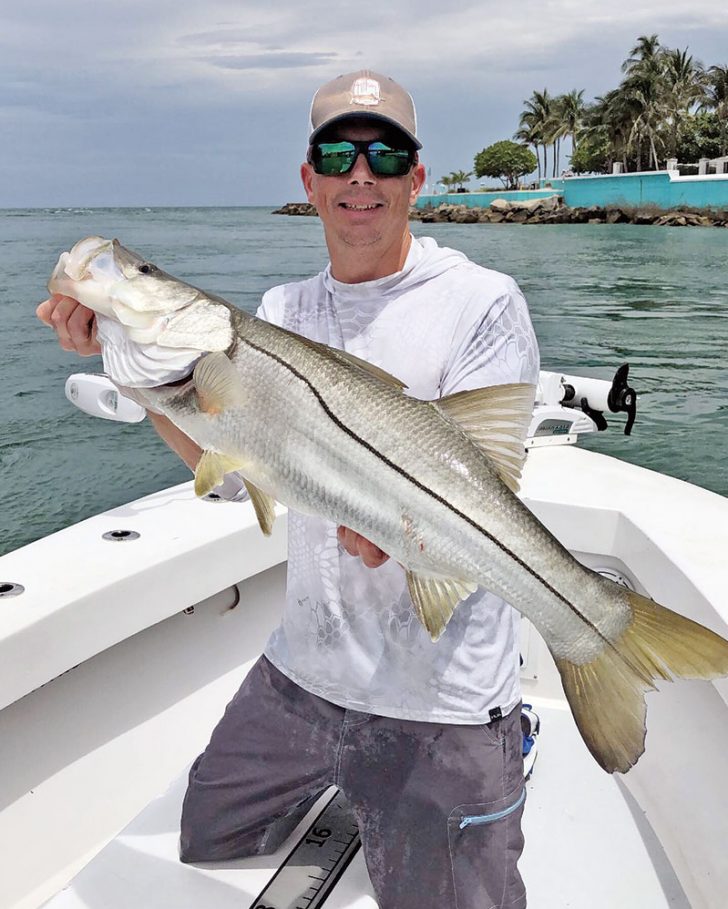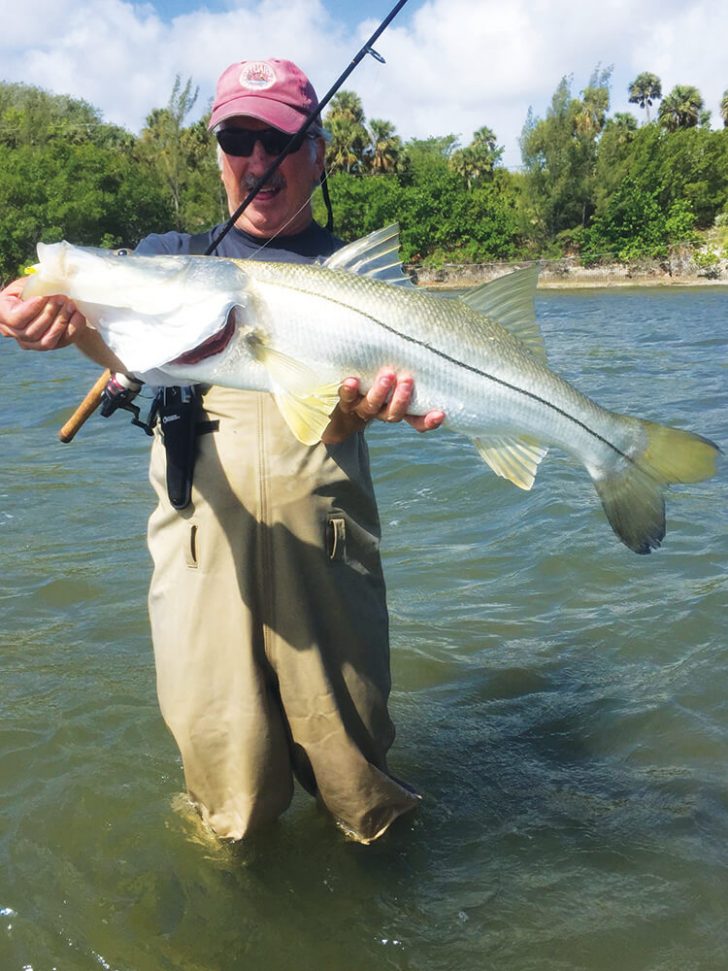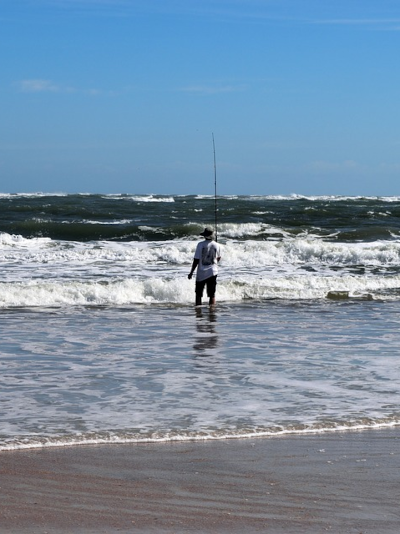Inshore Fishing vs Deep Sea Fishing in Miami
The waters of Miami bring an array of fishing opportunities, which is why it’s a popular place to fish around the world! Whether you want to catch snappers or groupers, amberjacks, or even swordfish, there’s always something fun to catch when in Miami. If you plan for a trip there, you’re probably wondering: What’s the difference between inshore fishing vs deep sea fishing in Miami, and which one should I go for?
Read on as we share the differences between these two fishing adventures, so you know which one to experience when in Miami!
Inshore Fishing vs Deep Sea Fishing in Miami
When you’re talking with Miami fishing charters, you’ll probably be faced with two significant choices: inshore or offshore fishing. It’s essential to know the differences and what to expect from these two fishing adventures, so you know what you’ll have the most fun with.
Here are the major differences to consider:
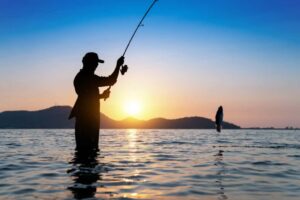
Location
The biggest difference between inshore and offshore fishing is the location.
Inshore fishing, known as bay fishing, takes place in bays and bayous near the shore, with calmer waters for a smoother trip. As for deep sea fishing, also called offshore fishing, it’s any kind of fishing done in waters with depths of over 100 feet.
Deep sea fishing charters would travel around 10-20 miles into the Gulf or ocean, depending on where you depart from. You get opportunities to fish for aquatic creatures inhabiting reefs, shipwrecks, and into the unknown!
Fishing Charters
Fishing charters are one of the best ways to experience either inshore or deep sea fishing. An experienced captain and crew would plan the trip according to your target species, also aiming to help you catch the biggest and hardest fighting fish.
Every fishing charter will come with the appropriate fishing charter licenses, bait, tackle, and fishing equipment for your convenience! However, the equipment, bait, and license used will vary from boat to boat. It depends on the captain!
In terms of technique, there are some differences. Inshore fishing will have you casting when anglers throw bait or lure over the waters through a fishing line and rod.
As for deep sea fishing, there are two primary techniques, such as bottom fishing and trolling. Bottom fishing refers to catching fish near the seafloor, while trolling refers to using one or more baited fishing lines pulled through the waters from a moving boat.
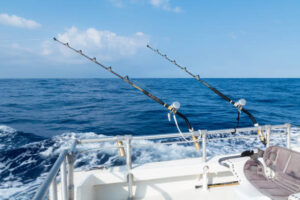
Restrictions and Regulations
Whether you’re going inshore or deep sea fishing, there are certain restrictions you must be aware of.
If you don’t plan on hiring a fishing charter, you will need to purchase a fishing license, which you can do in local marinas, fishing shops, and supermarkets. Fishing licenses would vary by duration and location, so you need to ensure you choose the correct one for your trip.
You will also need to look into the fishing regulations, which would depend on the license you hold and whether you are going inshore or deep sea fishing. If you choose a fishing charter, the captain and crew will let you know what’s okay to catch and keep or what you must release. If not, then it’s best to be acquainted with the specific Miami fishing rules and regulations on the following:
- Length and weight requirements of species
- Maximum bag limit
- The fish species in season
- What fish are protected by law
- The necessary (and banned) gear when catching certain species
What You’ll Catch
Inshore fishing would usually target small fish, while offshore fishing would target bigger trophy fish species. When inshore fishing, expect to get smaller catches like redfish, trout, or flounder. Offshore fishing charters can have you catch bigger gamefish like groupers and mahi-mahi, though this will require heavier equipment and a more challenging, longer fight.
Offshore fishing would have anglers yield a smaller quantity of fish as it takes more time and effort to find and reel trophy catches. Inshore fishing would have you catch more fish since they are not as aggressive and large. If the quantity is your goal, you may want to go for inshore fishing if you want the big one to boast to friends, offshore all the way!
Consider the fish you can catch when inshore fishing vs deep sea fishing in Miami, then you’ll have more of an idea on what charter to hire.
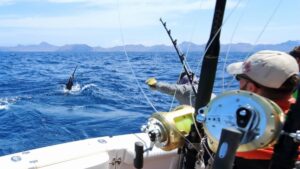
Family Friendliness
Inshore waters are calmer compared to what one would experience offshore, which is why the former is better if you’re a family with children. They are less likely to experience seasickness and will be able to catch smaller and “easier” fish. Families will enjoy grabbing opportunities to cast their lines and show off their catch.
Furthermore, inshore waters are shorter than offshore ones, so everyone stays entertained. It’s also closer to shore, so you won’t have to worry about the long trip back to land.
Time Constraints
With all that mentioned above, you can see that inshore fishing is more accessible since you won’t have to spend too much time going to the deep ocean waters casting a line. Offshore fishing will have a longer travel time, often involving setting bait in various spots to rotate through them.
On average, inshore fishing is about 4-6 hours long, while offshore trips can go for 8-12 hours, sometimes overnight. You can customize your inshore fishing trip to last for up to eight hours, though, if you wish.
For anglers with limited time, then we recommend going for inshore fishing. But if you want to go all out, you can take the entire day fishing offshore.
Wrapping It Up
When choosing between inshore fishing vs deep sea fishing in Miami, one is not better than the other. It will all depend on your personal preference and fishing goals. Ensure you look into the factors above, so you’re aware of what type of fishing charter to hire or join. What’s the next step? Book a fishing charter with us now!
LET’S GET STARTED

